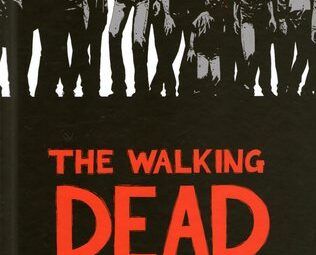Photo | Jamie Bernstein | Creative Commons
Mixtapes are an art form like any other. In their prime, they were the most poignant expression for the rappers that released them. They were effective for building audiences and making their way to critics and showcasing skills to labels for consideration. In the 2000s, it was almost a rite of passage for novice artists and popular artists alike to release a mix.
Twenty years down the line, we have come into an age of digital streaming services that make it easy to capitalize off online-only or platform restrictive releases. Mixtapes can be read almost as a derogatory comment when thrown in the direction of an amateur rapper’s initial few albums.
Tyler, the Creator, however, and his newest release, “Call Me If You Get Lost,” give a pretty convincing argument toward the notion that a mixtape has its rightful place in releases. As often is the case, just because a format is considered outdated, it does not mean it is not beautiful in its own respect. And that in itself is beautiful in its own respect.
“Call Me” is hosted by DJ Drama, a Philly staple whose “Gangsta Grillz” series contains many of the great rap records that Pitchfork considers to be “essential [listens] of the century so far.” Drama’s additions to these songs, which read more like adventures into Tyler’s personal life, are incredibly enjoyable. On grittier moments, his guiding quips make the tracks feel deeply like a mix; other times his comedic goading immerses the listener deeper into the scene that Tyler sets. Especially themes of luxurious living, paired with lines like, “A young lady just fed me French vanilla ice cream!”
DJ Drama being in on the project is not the only poignant piece of this record that harkens back to mixtape days. Many of the songs on “Call Me” do not bother making it to three minutes, while a couple of songs run marathons and come in closer to ten minutes. The intros and motifs throughout the tracks run into familiar audial quirks that are reminiscent of those old days, too. So, reader, you may think to yourself, “When does something similar to a mixtape become a mixtape?”
The answer to this, I believe, has to do more with theme. The mixtapes of yesteryear were more showcases of talent and production. This was necessary for the age of physical music because artists needed to provide their range of freestyles, radio singles, and original unreleased content in a quick enough manner to be considered label worthy. Tyler, the Creator, however, lives in our digital age. He has nothing in particular to prove to anyone, and yet he still manages to pack a heavy punch into the medium.
“Call Me” is a constant reference to travel. As stated on “Massa,” Tyler considers his passport to be his most valuable possession, compared to material possessions amassed due to success. These two themes anchor “Call Me” into what it is: a snapshot into Tyler’s current mindset and his views on where he has come and to where he will go next. Those two subject matters might come off a little nauseating to those who do not live such a jet-set life. But they are returned between uncomfortable personal truths that make Tyler ‘Bunnyhop’ Baudelaire (Tyler’s newest alter-ego) incredibly more human. Pair that with stripped back, cheaper than usual production, and here we have this passion project tied up in a bow.
In the more personal moments, there are many different facets of Tyler that come to the surface on “Call Me.” In “Manifesto” he considers the impact of his earlier shock-factor raps that ostracized him from the mainstream audiences that welcome him now. He also discusses the way he raps for both Black and white audiences while retreating from political pandering because it is just not him.
On “Massa,” Tyler reveals that when his breakout single “Yonkers” dropped back in 2011, his mother was living in a shelter. My favorite moment on the track listing is “Wilshire,” a deep dive into a situation-ship between Tyler and a friend’s girlfriend. At 8 minutes 35 seconds, it’s one of two of the longer tracks on the album, but it reads like a stream of consciousness reflection upon his feelings surrounding the entire situation.
These thematic progressions throughout the record make all the difference in distinguishing “Call Me” from lesser projects. This one might be considered the album of the year and for good reason. Bunnyhop put it all out there for this one, and I believe the reception met the anticipation halfway. I give “Call Me If You Get Lost” an 8/10.







